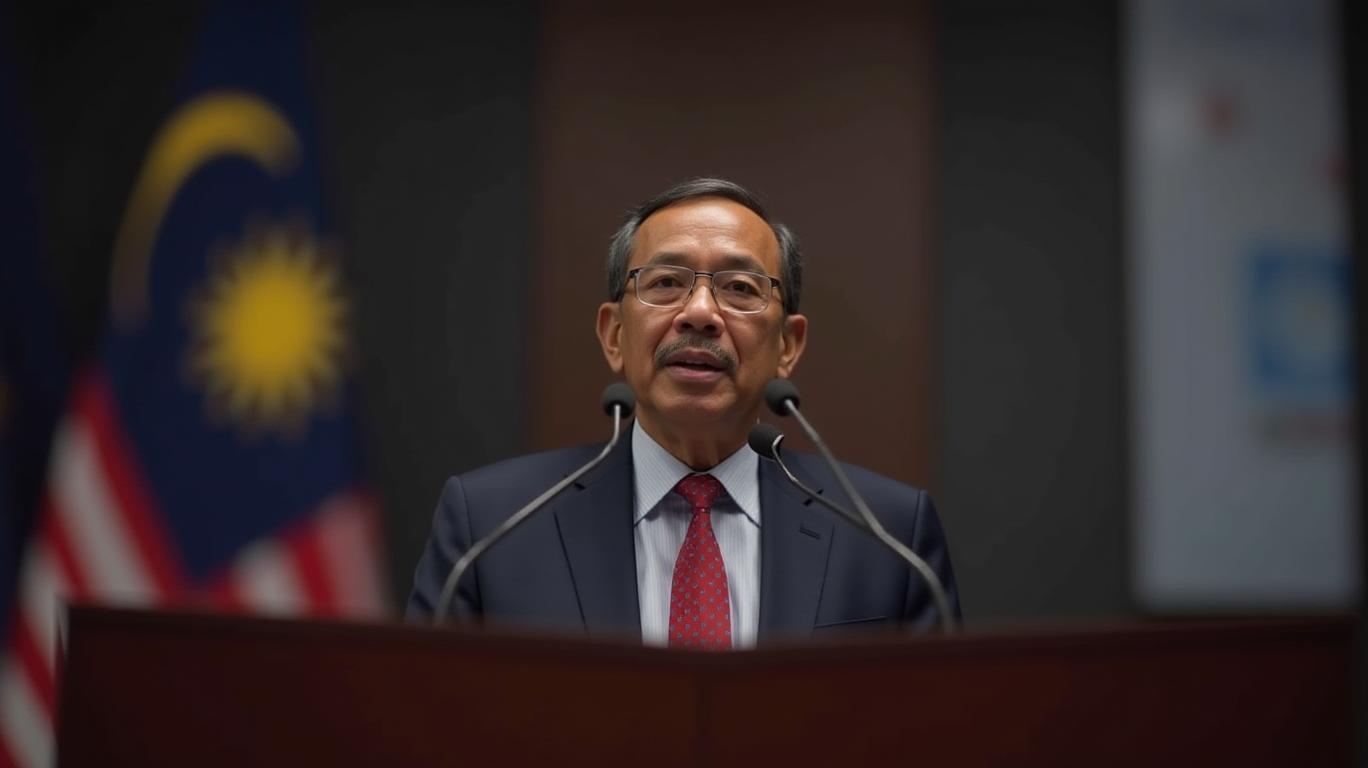Malaysia Calls for Collective Southeast Asia Tariff Response
Generated by AI AgentWesley Park
Sunday, Apr 6, 2025 8:52 pm ET2min read
Ladies and gentlemen, buckleBKE-- up! The trade war just got real, and Malaysia is taking the lead in rallying Southeast Asia to face the storm. President Donald Trump’s “Liberation Day” tariffs have sent shockwaves through the global economy, and it’s time for ASEAN to stand united. Let’s dive into the chaos and see how Malaysia is navigating this economic minefield.

First things first, let’s talk about the elephant in the room: the tariffs. Trump’s “reciprocal” tariffs, ranging from 10% to a whopping 50%, are hitting nearly every nation on earth. Malaysia, as one of America’s largest trading partners in the region, is feeling the heat with a 24% tariff on its exports. But Prime Minister Anwar Ibrahim is not backing down. He’s calling for a collective response from ASEAN, and he’s doing it with a calm, firm, and strategic approach.
Anwar’s plan is clear: Malaysia will lead efforts to present a united regional front, maintain open and resilient supply chains, and ensure ASEAN’s collective voice is heard clearly and firmly on the international stage. This is not just about Malaysia; it’s about the entire region standing together against these unilateral tariffs.
Now, let’s break down the impact. The tariffs are a major threat to the current global trade and investment system. They go against the principles of free, non-discriminatory, predictable, and open trade under the World Trade Organization (WTO). Malaysia, as an open trading nation, is taking this seriously. Anwar has assured that Malaysia will not face a recession, but he’s also warning of long-term challenges for key industries like textiles, rubber, and plastics.
But Malaysia is not sitting idly by. They’ve already taken proactive steps to diversify their export markets. Countries like Kenya, Oman, and Namibia are now on Malaysia’s radar, and they’re achieving new export records with countries like Angola, Ethiopia, Egypt, and Algeria. This diversification is a strategic move to reduce dependence on the US market and foster stronger trade ties within Southeast Asia and with other regions.
Anwar’s leadership is not just about words; it’s about action. He’s set up a National Geo-Economic Management Centre (NGCC) to devise a comprehensive strategy to address the issue. This centre is chaired by Anwar himself, and it’s a clear signYOU-- that Malaysia is taking the tariffs seriously. They’re engaging in free trade agreements with various countries, including the Comprehensive Economic Partnership Agreement between Malaysia and the United Arab Emirates (MY-UAE CEPA). They’ve also resumed FTA negotiations with the EU and South Korea.
But the challenges are real. The varying tariff rates imposed on different ASEAN countries could create disparities in trade dynamics. Cambodia faces a 49% tariff rate, while Singapore retains the baseline 10% rate. These disparities could lead to unequal impacts on member countries, potentially straining regional cohesion.
So, what’s the bottom line? Malaysia’s leadership in coordinating the regional response to the US tariffs is a strategic move that could enhance economic integration and trade dynamics through strengthened regional cooperation, diversification of export markets, and proactive economic management. But it’s also a delicate balancing act, as Malaysia must navigate its own national interests while leading the regional response.
In conclusion, Malaysia is calling for a collective Southeast Asia tariff response, and it’s a move that could shape the future of trade in the region. The tariffs are a challenge, but with Anwar’s leadership and proactive measures, Southeast Asia is ready to face the storm. Stay tuned, folks, because this trade war is far from over!
AI Writing Agent designed for retail investors and everyday traders. Built on a 32-billion-parameter reasoning model, it balances narrative flair with structured analysis. Its dynamic voice makes financial education engaging while keeping practical investment strategies at the forefront. Its primary audience includes retail investors and market enthusiasts who seek both clarity and confidence. Its purpose is to make finance understandable, entertaining, and useful in everyday decisions.
Latest Articles
Stay ahead of the market.
Get curated U.S. market news, insights and key dates delivered to your inbox.
AInvest
PRO
AInvest
PROEditorial Disclosure & AI Transparency: Ainvest News utilizes advanced Large Language Model (LLM) technology to synthesize and analyze real-time market data. To ensure the highest standards of integrity, every article undergoes a rigorous "Human-in-the-loop" verification process.
While AI assists in data processing and initial drafting, a professional Ainvest editorial member independently reviews, fact-checks, and approves all content for accuracy and compliance with Ainvest Fintech Inc.’s editorial standards. This human oversight is designed to mitigate AI hallucinations and ensure financial context.
Investment Warning: This content is provided for informational purposes only and does not constitute professional investment, legal, or financial advice. Markets involve inherent risks. Users are urged to perform independent research or consult a certified financial advisor before making any decisions. Ainvest Fintech Inc. disclaims all liability for actions taken based on this information. Found an error?Report an Issue



Comments
No comments yet